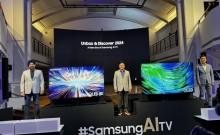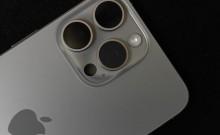Microsoft has teamed up with the University of Sydney to build the world's first quantum computer, which will be capable of solving problems that are beyond the capability conventional computers.
The Redmond-based tech giant said while announcing the multi-year partnership on Tuesday that quantum computing has endless potential of solving various global issues, ranging from climate change to medicine. According to the university's professor David Reilly, who is in charge of the project called Station Q Sydney, quantum computing is one of the most significant opportunities in the 21st century, which can transform the global economy and society at large.
"We're investing big to get a scalable quantum computer," David Pritchard, chief of staff for Microsoft's Artificial Intelligence and Research Group, reportedly said. "In the long run ... we'll have significant results coming out of our program over the next few years," including "major achievements" before the end of 2017.

Traditional computers store information in binary bits whose value can be either 1 or 0. Quantum computing, on the other hand, exploits the ability of photons to exist in multiple states at any time, allowing them to store much more information than just 1 or 0.
It is the way these tiny particles behave that allows quantum computing to perform operations more quickly while using less energy than traditional computers.
According to Reilly, the partnership with Microsoft will pave way for a rich and robust local quantum economy with more skilled people and future investments in new equipment and research.
Quantum computing is "a technology that we believe will disrupt the way we live, reshaping national and global security and revolutionising medicine, communications and transport," Reilly said in a statement. "We've reached a point where we can move from mathematical modelling and theory to applied engineering for significant scale-up."
Station Q Sydney joins Microsoft's other experimental quantum computing research sites at Purdue University in the US, Delft University of Technology in the Netherlands and the University of Copenhagen.











